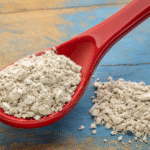

The Hidden Danger in Your Medicine Cabinet: How Heartburn Medications May Raise Heart Attack Risk
“My people are destroyed for lack of knowledge.”
Hosea 4:6
The Hidden Danger in Your Medicine Cabinet: How Heartburn Medications May Raise Heart Attack Risk
Heartburn is uncomfortable—but the long-term damage from certain popular heartburn medications may be far worse than the burning in your chest.
Proton pump inhibitors (PPIs) like omeprazole (Prilosec) and esomeprazole (Nexium) are widely prescribed for acid reflux and GERD. But mounting research is now linking long-term use of these drugs to a significantly increased risk of heart attacks, kidney disease, nutrient deficiencies, and more.
Let’s take a closer look at what these medications are doing behind the scenes—and what safer, more natural alternatives exist.
💊 What Are PPIs and Why Are They Prescribed?
Proton pump inhibitors work by blocking the production of stomach acid. They are intended for short-term relief, usually 2–8 weeks. However, many people stay on them for months or even years, often without understanding the consequences.
🚨 The Alarming Connection: Heartburn Meds and Heart Attacks
Multiple studies have shown a notable increase in heart attack risk among users of PPIs—even in people who have no prior heart disease. Here’s how:
1. Reduced Nitric Oxide
PPIs interfere with the body’s ability to produce nitric oxide, a key molecule that keeps blood vessels relaxed and flexible. Without it, blood pressure can rise, and arteries become more prone to blockages.
2. Endothelial Dysfunction
These medications can damage the lining of blood vessels, leading to inflammation and an increased risk of plaque buildup—one of the leading contributors to heart disease.
3. Magnesium Depletion
PPIs can cause low magnesium levels, which can trigger irregular heart rhythms, muscle cramps, and even seizures in extreme cases.
A 2015 Stanford study found that people who take PPIs have a 16–21% higher risk of heart attacks compared to non-users.
⚠️ Other Dangerous Side Effects
Long-term PPI use has also been linked to:
- Kidney disease and failure
- Vitamin B12 deficiency
- Increased risk of dementia
- Higher chance of bone fractures
- Overgrowth of harmful bacteria in the gut (like C. diff)
🌿 Natural Ways to Relieve Heartburn—Without Risking Your Heart
If you struggle with heartburn, you don’t have to choose between acid and heart attacks. Here are safe, effective alternatives:
1. Organic Apple Cider Vinegar (ACV)
A teaspoon of ACV in water before meals can stimulate stomach acid and improve digestion—counterintuitive, but helpful in many cases.
2. Slippery Elm or Marshmallow Root Tea
These natural herbs coat and soothe the esophagus, reducing irritation and inflammation.
3. Aloe Vera Juice
Drinking a small amount of pure aloe vera juice before meals can reduce inflammation and heal the digestive tract.
4. Diet Changes
Eliminate trigger foods such as:
- Processed foods
- Fried and greasy meals
- Carbonated drinks
- Sugar and refined carbs
Instead, opt for:
- Lean proteins
- Steamed vegetables
- Whole grains
- Organic herbal teas
5. Eat Smaller, Slower Meals
Overeating puts pressure on the stomach and can push acid upward. Smaller, mindful meals are gentler on the digestive system.
🙏 God’s Design for Healing
Your body was designed to heal when nourished and cared for naturally. When we lean into creation and step away from man-made quick fixes, we often find the root of the issue—and true healing.
Heartburn is often a symptom of poor digestion, stress, or dietary habits—not a deficiency in acid-blocking drugs.
📝 Final Thoughts
The next time you reach for that little purple pill, take a pause. Ask yourself if you’re addressing the cause—or just covering a warning light. While occasional use of PPIs may be necessary in extreme cases, long-term reliance can have dangerous consequences for your heart and your overall health.
There are better ways—God’s ways—to restore balance, protect your heart, and live well.
💬 What has helped you naturally heal from acid reflux or indigestion? Share your story or questions in the comments—we’d love to support your journey.











Post Comment
You must be logged in to post a comment.